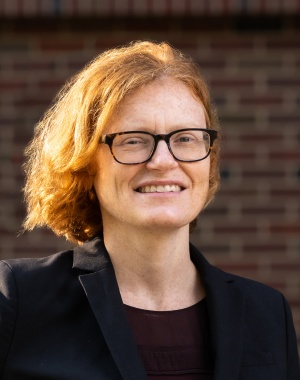
University of Michigan researchers from the Education Policy Initiative (EPI) at the Gerald R. Ford School of Public Policy and the Marsal Family School of Education have partnered with MDRC, District of Columbia Public Schools (DCPS), and the Urban Institute to launch a study on the implementation of high-quality, domain-specific Pre-K curricula. The project builds on previous collaborations between EPI co-director Christina Weiland and MDRC’s Michelle Maier that examined the implementation and impact of Boston Public Schools’ Pre-K model. Boston’s model has had significant positive impacts on children’s kindergarten readiness (Weiland & Yoshikawa, 2013). In addition to Weiland, the UM team also includes EPI’s Annie Taylor and UM undergraduate Mayancela-Cazho. DCPS is using Boston’s model to guide its implementation.
"An important part of Boston's success delivering strong early learning experiences for children has been using evidence-based curricula supported by coaching. It's exciting to learn from DC's implementation of the same approach. We expect study findings will provide actionable, concrete guidance for DC and other localities on the ‘how’ of improving teaching and learning for their youngest learners," said Weiland.
About the project
In 2023, DCPS began implementing a high-quality, evidence-based math curriculum (called Building Blocks) for their nearly 6,000 Pre-K students district-wide. Educators and school leaders have received Building Blocks-specific training and coaching to support the implementation. In the coming school year, DCPS will begin to implement a language and literacy curriculum that they are adapting from Boston’s Focus on Pre-K curriculum. Using a combination of quantitative and qualitative data collection methods, the study will answer research questions designed to understand and enhance the DCPS rollout and improve future implementations of similar curricula and professional development models in other large districts.
The study team is facilitating learning across Boston and DC with the launch of a learning community comprised of leaders and practitioners from both DCPS and BPS. The team hopes a continuing dialogue between users of research-backed, high-quality curricula will not only create a growing knowledge base and support the healthy exchange of information but can also spur a similar interest in neighboring districts and encourage a faster adoption rate.
Impact
The three-year study provides researchers a unique opportunity to study a large-scale, district-wide transition from the country’s most commonly used public school Pre-K curriculum to a research-backed, evidence-based model. The team hopes the findings will be useful to a broad swath of programs interested in making a similar switch.
According to Cheryl Ohlson, Deputy Chief of the Early Childhood Education Division at DCPS, her team is excited by the transition and eager to contribute to improvements in early learning. “DCPS relied heavily on research from other districts to inform our decision-making process as we considered a variety of curricular options for our Pre-K program. Now that we have begun the process of significantly shifting our early childhood curriculum practices, we’re thrilled to be part of a research study that will not only help to guide future decisions within our district but to be able to share our experiences with other districts that are also thinking about ways to improve early learning. I’m confident that this work will not only positively impact learning for our nearly 6,000 Pre-K students, but hopefully also for thousands of children across the country,” said Ohlson.
The project is jointly funded by The Bill & Melinda Gates Foundation, The Heising-Simons Foundation, and Arnold Ventures.
Written by Traci Husse
